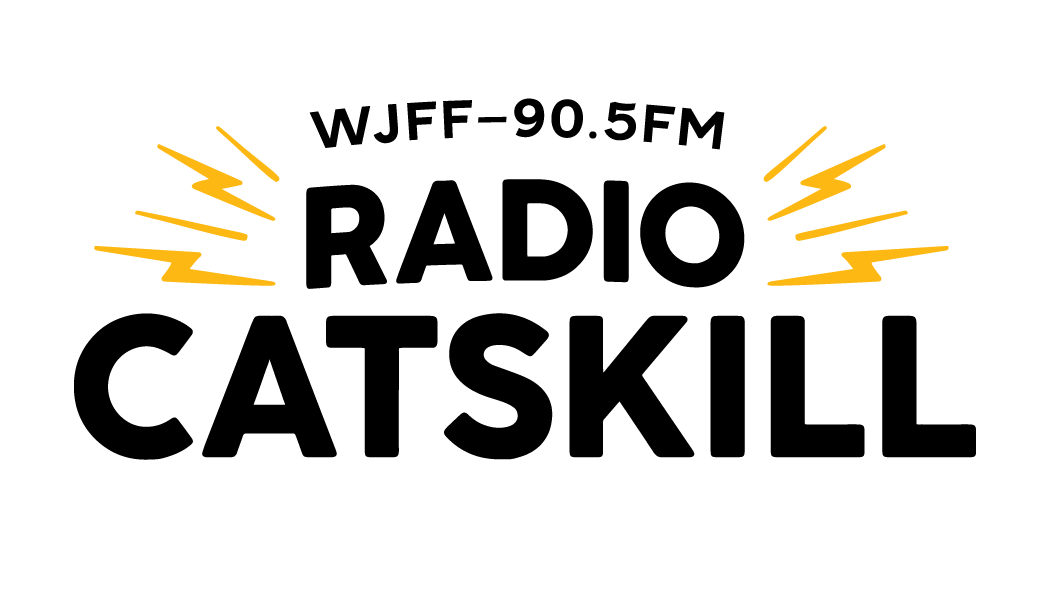Village Apothecary, an independent pharmacy located in Woodstock, recently announced that they might have to stop filling prescriptions that have led to profit losses of upwards of $130,000. And they are not the only local pharmacy having to make this choice.
Local pharmacies, not only throughout the Hudson Valley but also across the country, are either considering cutting prescriptions where they are being reimbursed below their cost or even closing their doors to customers in the face of economic uncertainty. They have named pharmacy benefit managers (PBMs) as the culprit.
The “middlemen” of the pharmaceutical industry, PBMs were initially created to help process prescriptions between insurance companies, pharmacies and patients. Because the United States does not have a universal healthcare system, state governments, especially after the passage of the Affordable Care Act, and insurance companies turned to PBMs to manage their prescription-related claims. However, Dr. Neal Smoller, long-time pharmacist and owner of Village Apothecary, said the problem lies in the fact that PBMs get to decide how much pharmacies are reimbursed for dispensing prescriptions, increasingly siphoning profit for themselves in the process.
“It’s like credit card companies, right?” Smoller said in an interview with Radio Catskill. “PBMs are valuable in that they can help with [the] management of transactions. Visa and MasterCard take about 3-4%, which is still too high, and most businesses are now passing that along to people because that 3-4% is so high. [But] PBMs in their middleman place takes about 30-40% of every Medicare dollar, and that’s probably a low estimate…They often get more money to process the transaction than we get to dispense the transaction, to provide the professional service. So just to be a computer, a spreadsheet, they get more money directly than we do. And so over the years, because they’ve worked in this regulatory free environment because they work inside of a black box, they’ve been able to get away with murder, and they’ve lobbied very strongly and won.”
According to an article by The New York Times, through a combination of negotiating rebates with manufacturers, overcharging their employers and underpaying local pharmacies through a tactic known as spread pricing, PBMs have become extremely profitable. The largest PBMs in the United States are CVS Health’s CVS Caremark, Cigna’s Express Scripts and UnitedHealth Group’s OptumRx, which collectively processed 80% of all prescription claims in 2024.
What has raised particular alarm is that the parent companies of these three PBMs also all have their own pharmacies. Whether it is CVS’s chain of retail pharmacies or UnitedHealth Group’s mail order pharmacies, Smoller said PBMs “set the rules” for local pharmacies like his, reimbursing their own pharmacies at a higher rate, even as they simultaneously compete with them.
“ Heavily vertically integrated and monopolistic practices are par for the course with these folks,” Smoller said. “If you think about it, being a PBM and then owning a mail order pharmacy seems pretty anti-competitive, especially because if you’re making the rules of who gets paid what, you can pay yourself more, which they do. You can charge the plans more and penalize people for using independent pharmacies, and you can direct people to use your pharmacies and services just as a matter of the contract.”
While PBMs were designed to help lower the costs for patients, local pharmacists have argued they have done the exact opposite. According to an internal audit, New York found that it unnecessarily paid $605 million worth of taxpayer money to Medicaid Managed Care Organizations and their PBMs from 2016-2019. In response, the state eventually established the NY Medicaid Pharmacy Program (NYRx) as of April 1, 2023 to safeguard against this issue, as to where New York directly pays pharmacies, but PBMs remain a dominant force in the field.
As a result, Smoller said he’s specifically looking at no longer filling GLP-1 drugs, popular medications for treating diabetes and weight loss, brand-name drugs and narcotic drugs because of the negative reimbursement on these prescriptions. While PBMs have historically raised issues, Smoller said it’s become increasingly worse since he first entered the field in 2006 — having sold his Saugerties pharmacy back in 2015 in fear. Straight losses currently make up about 16.5% of their business, equating to about $50,000 in direct drug losses and about another $80,000 in the uncompensated labor of dispensing them.
Dr. Samir K Shah, owner of independent pharmacy K&K Pharmacy in Liberty, and Dr. Gene Burns, owner of Riverside Remedies in Callicoon, also confirmed that they would likely cut GLP-1s first in the case that they have to. Burns, who is still deciding on whether or not to cut certain prescriptions, said losses have reached a point where action must be taken. From June 24, 2024 to June 25, 2025, Burns said dispensing Ozempic led to straight losses of $46,707 and filling Mounjaro, another type of GLP-1, lost them $64,921.
Village Apothecary became central to regional efforts to ensure that local residents were properly vaccinated during the COVID-19 pandemic. Similarly, Shah said K&K Pharmacy helped vaccinate the community, especially the elderly population in Liberty, through the pharmacy’s open-door policy and by actually traveling to people’s homes. However, these same pharmacies are now having to grapple with turning away the very people they aimed to help just a few years ago — becoming selective in terms of what prescriptions and insurance plans they cover in a complete reverse of standard practice.
“During the pandemic, we gave 70,000 COVID shots across two counties, and people were so thrilled with us and so happy with us. And they said, ‘I want to support you,’ ‘I want to move my business to your pharmacy,’” Smoller said. “And what I said was, ‘please don’t, because I don’t know if your insurance, your PBM is gonna have predatory reimbursement schemes at play.’ Am I gonna lose money by serving you? Which is an insane concept…It’s like a slot machine. We pull a lever and we don’t know if we’re gonna lose our money that we put in, if they’re going to take money out of our wallets or if we might actually hit a jackpot this one time. But is that gain enough to make up for all the losses that we’re taking?”
The pressure of financial strain has been tremendous on Burns. Having been born and raised in Sullivan County himself, with his family roots in Liberty going back generations, Burns said it’s been challenging to feel that he has to choose between economic stability for his pharmacy and his main goal of caring for his patients.
“It’s been hard to square that desire to do good with just getting pummeled day after day by [PBMs] and having to tell people ‘we can’t do this’ or ‘I can get this for you next week because our budget’s already 50% over where we should be this week,’” Burns said. “It’s really hard…I’m here 12 hours a day every day, just managing the front of the pharmacy when we’re open and then the things on the back end, the business side of things when we’re closed. It’s a huge time commitment. I wasn’t able to take my honeymoon with my wife because there’s nobody to cover. There’s only 30 pharmacists in the county, and that’s everybody…There’s very little access to any healthcare providers and pharmacists in particular — we’re a very small community…What’s keeping me here is that desire to do good and to take care of the patients that I have, but the hard part of it is knowing I could go anywhere else and have shorter, easier days and a more profitable career. At the end of the day, it’s a labor of love I guess.”
Amid the closure of local pharmacies throughout the country and the subsequent growth of pharmacy deserts in small, especially more rural communities, Burns emphasized how local pharmacies like Riverside Remedies are critical for their accessibility in areas where transportation can be a major challenge. Until Riverside Remedies opened in 2014, Callicoon had no pharmacy after Becker’s Pharmacy burned down in the late 90s. In addition, Burns said local pharmacies also differentiate themselves from mail order pharmacies in terms of service — providing personalized care to their patients with no appointments needed.
“Knowing my patients and knowing what everybody takes and what they’ve got going on, it’s even more than just seeing their medications on my computer screen,” Burns said. “I know that person, I know Joe and I know his kidneys are on the fritz, so maybe we shouldn’t use this medication. We should use something else, even if nothing else interacts necessarily on his medication profile. And to almost give a little bit of a vision of what happens. There are still plenty of patients in the area who, just out of convenience or sometimes for costs, use mail order pharmacy. But every winter, when we get a really bad snow storm…your stuff in the mail might not make it today. And if you’re a diabetic, if you’re taking some blood thinner to stop you from having another heart attack, or you’re taking an anti-arrhythmic to keep your heart beating in time, can you wait from Thursday to Tuesday? For the mail to clear through and to finally go out to the post office to get your medication? Probably not.”
Arkansas Governor Sarah Huckabee Sanders recently signed into law that PBMs are barred from operating their own pharmacies in the state. Interestingly, CVS responded by reporting that it might shut down all 23 of its pharmacies in Arkansas.
Overall, legislative efforts to regulate PBMs remain stalled under the Trump administration, but Smoller said that the community in Woodstock is actively fighting for the Village Apothecary.
“I’ve been talking about this pretty openly with the community, and the community of course wants us to be there,” Smoller said. “They’re fighting tooth and nail to have us there. They’re supporting us by getting their vaccines with us, buying supplements. We even have a membership program now that people don’t even need to be in, and they just want to help us stay afloat. They want us to be there.”
Image: The inside of independent pharmacy Village Apothecary in Woodstock, NY. (Photo credit: villageapothecaryrx.com)


Pharmacies shouldn’t be forced to sell a drug for below the cost. That’s just not fair trade, and anti-competitive. This really needs to be looked into.